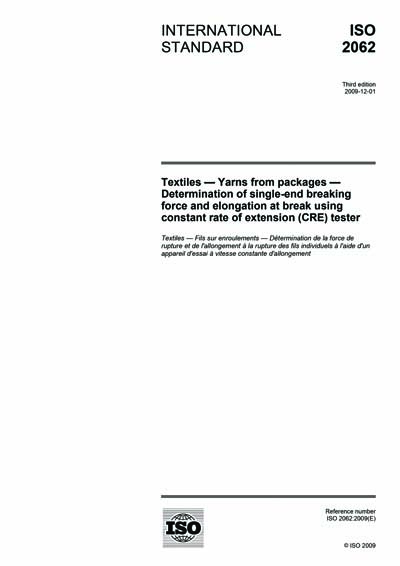Most recent
ISO 2062:2009
Textiles - Yarns from packages - Determination of single-end breaking force and elongation at break using constant rate of extension (CRE) tester
ISO 2062:2009 specifies methods for the determination of the breaking force and elongation at break of textile yarns taken from packages.
Four methods are given:
- A: manual; specimens are taken directly from conditioned packages;
- B: automatic; specimens are taken directly from conditioned packages;
- C: manual; relaxed test skeins are used after conditioning;
- D: manual; specimens are used after wetting.
Method C is used in cases of dispute regarding elongation at break of the yarn.
ISO 2062:2009 specifies methods using constant rate of specimen extension (CRE) tensile testers. Testing on the now obsolete constant rate of travel (CRT) and constant rate of loading (CRL) instruments is covered, for information, in Annex A, in recognition of the fact that these instruments are still in use and can be used by agreement.
ISO 2062:2009 applies to all types of yarns, except glass, elastomeric, aramid, high molecular polyethylene (HMPE), ultra high molecular polyethylene (UHMPE), ceramic and carbon yarns and polyolefin tape.
ISO 2062:2009 is applicable to yarns from packages but can be applied to yarns extracted from fabrics, subject to agreement between the interested parties.
ISO 2062:2009 is intended for the single-end (single-strand) testing of yarns.
International Organization for Standardization [iso]

